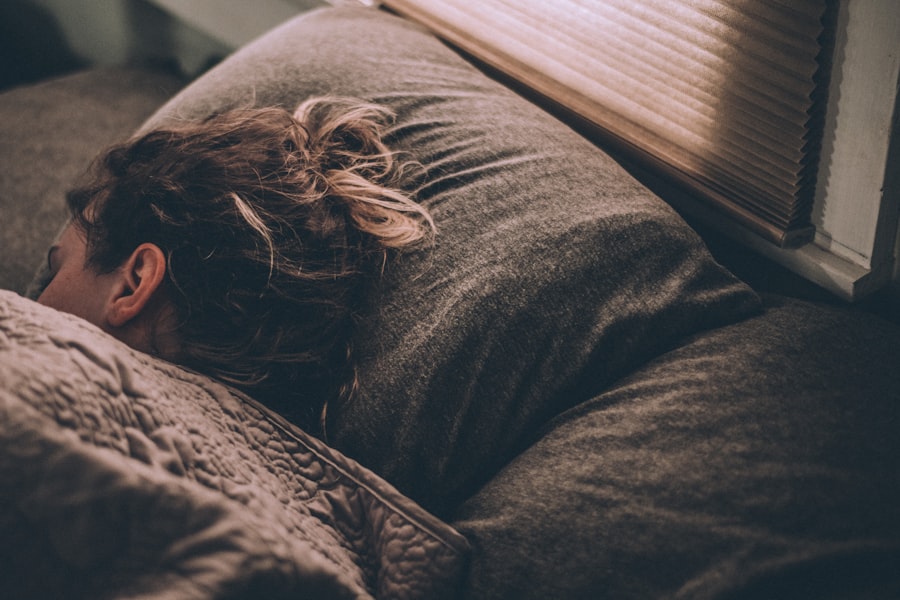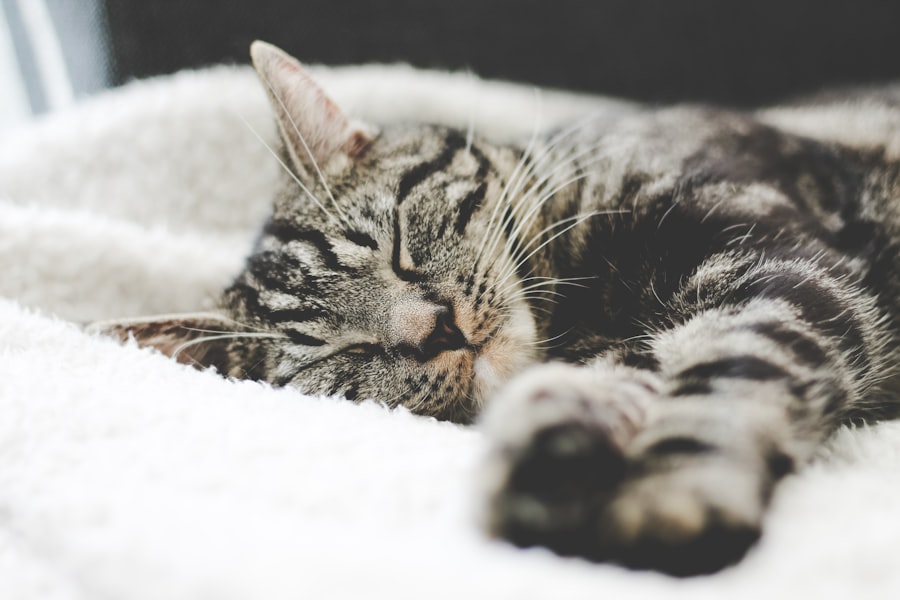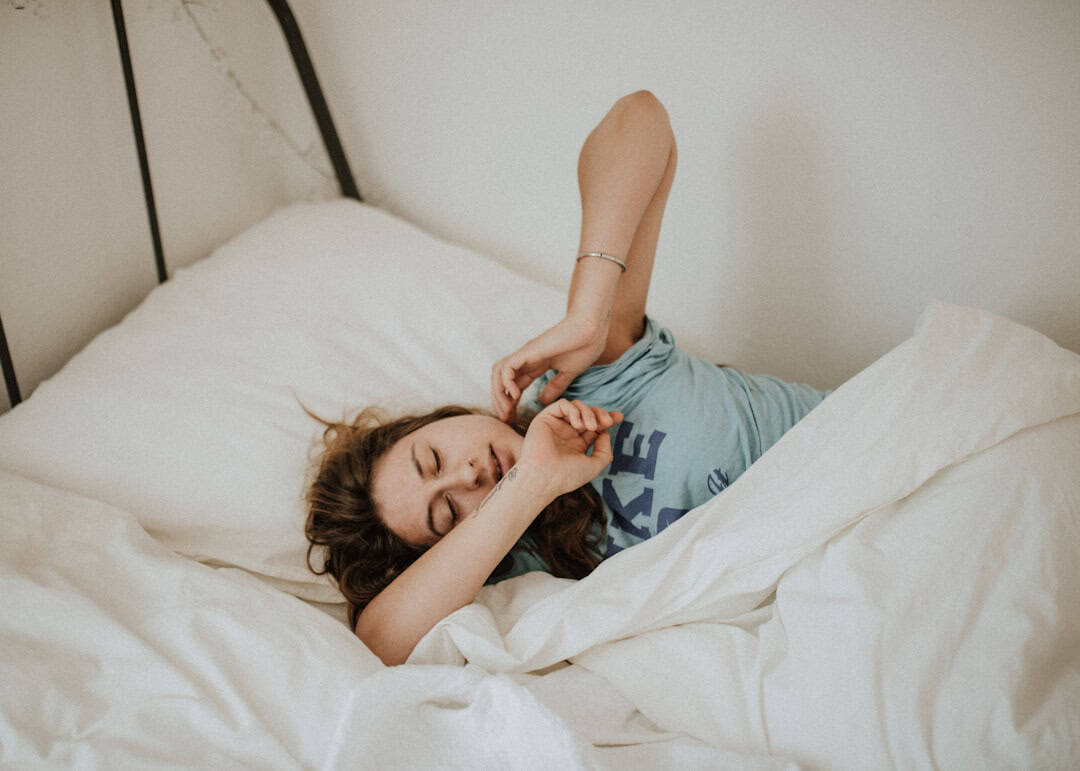In an age where technology permeates every aspect of our lives, the quest for better sleep has led to the emergence of sleep-tracking apps. These applications, designed to monitor and analyze sleep patterns, have gained immense popularity among individuals seeking to improve their sleep quality. With the increasing prevalence of sleep disorders and the growing awareness of the importance of sleep for overall health, these apps offer a convenient solution for users to gain insights into their nightly rest.
By utilizing various sensors and algorithms, sleep-tracking apps can provide users with valuable data about their sleep cycles, duration, and even disturbances that may affect their rest. The rise of sleep-tracking apps is not merely a trend; it reflects a broader societal shift towards self-optimization and health monitoring. As people become more health-conscious, they are turning to technology to help them understand their bodies better.
Sleep is a critical component of well-being, influencing everything from cognitive function to emotional stability. By leveraging the capabilities of smartphones and wearable devices, these apps empower users to take control of their sleep habits, identify patterns, and make informed decisions to enhance their nightly rest. The integration of sleep science with technology has opened new avenues for individuals to explore the intricacies of their sleep, making it an exciting field for both developers and users alike.
Key Takeaways
- Sleep-tracking apps can help monitor and improve sleep quality by providing insights into sleep patterns and habits.
- When choosing a sleep-tracking app, consider factors such as accuracy, ease of use, compatibility with devices, and additional features like smart alarms and sleep tips.
- Sleep Cycle offers features such as intelligent alarm clocks and sleep analysis to help users wake up feeling refreshed and well-rested.
- Pillow provides detailed sleep tracking, heart rate analysis, and sleep aid sounds to help users achieve better sleep quality.
- SleepScore uses advanced sleep monitoring technology and personalized insights to help users understand and improve their sleep patterns.
Criteria for Choosing the Best Sleep-Tracking Apps
When selecting a sleep-tracking app, several criteria should be considered to ensure that it meets individual needs and preferences. First and foremost, accuracy is paramount. An effective sleep-tracking app should utilize advanced algorithms and sensors to provide reliable data on sleep stages, duration, and disturbances.
Another important criterion is user-friendliness.
A well-designed app should have an intuitive interface that allows users to navigate easily through its features. Complicated setups or convoluted menus can deter users from fully engaging with the app. Additionally, customization options are essential; users should be able to tailor the app’s settings according to their specific needs, such as adjusting alarm times or selecting preferred soundscapes for relaxation.
Furthermore, compatibility with other devices, such as smartwatches or fitness trackers, can enhance the overall experience by providing a more comprehensive view of health metrics. Privacy and data security are also critical factors to consider when choosing a sleep-tracking app. Given that these applications often collect sensitive personal information, users should ensure that the app has robust privacy policies in place.
Transparency regarding data usage and storage is essential for building trust between the user and the app developer. Lastly, additional features such as sleep coaching, integration with health platforms, or community support can add significant value to the user experience, making it easier for individuals to achieve their sleep goals.
Top 3 Sleep-Tracking Apps: Features and Benefits

With numerous sleep-tracking apps available on the market, identifying the top contenders can help users make informed choices. Among the most highly regarded apps are Sleep Cycle, Pillow, and SleepScore. Each of these applications offers unique features and benefits that cater to different user preferences and needs.
Sleep Cycle stands out for its sophisticated algorithm that analyzes sleep patterns and provides personalized insights. The app uses sound analysis technology to detect snoring and other disturbances while users sleep. One of its most appealing features is the smart alarm clock, which wakes users up during their lightest sleep phase within a specified time window.
This approach minimizes grogginess upon waking and promotes a more refreshed start to the day. Additionally, Sleep Cycle offers detailed statistics on sleep quality over time, allowing users to track improvements or identify areas needing attention. Pillow is another noteworthy contender in the realm of sleep-tracking apps.
It combines advanced tracking capabilities with a sleek design that appeals to users who appreciate aesthetics alongside functionality. Pillow offers both automatic and manual tracking options, allowing users to choose how they want to log their sleep. The app provides insights into sleep quality based on heart rate data collected from compatible devices, making it particularly appealing for those who prioritize health metrics.
Furthermore, Pillow includes guided meditations and soundscapes designed to promote relaxation before bedtime, enhancing the overall sleep experience. SleepScore rounds out the top three with its unique approach to sleep tracking. Unlike many other apps that rely solely on wearable devices or smartphones, SleepScore utilizes sonar technology to monitor breathing patterns and movement during sleep without requiring physical contact.
This non-invasive method appeals to users who may be uncomfortable wearing devices while they rest. The app provides comprehensive reports on sleep quality and offers personalized recommendations based on individual data. Additionally, SleepScore features a library of resources on sleep hygiene and tips for improving overall rest quality.
App #1: Sleep Cycle
Sleep Cycle has garnered a loyal following due to its innovative approach to monitoring sleep patterns. The app employs advanced sound analysis technology that listens for sounds made during sleep, such as snoring or movement, allowing it to determine which stage of sleep a user is in at any given time. This capability enables Sleep Cycle to provide detailed insights into not only how long a user sleeps but also how restful that sleep is.
Users can view graphs and statistics that illustrate their nightly rest patterns over time, helping them identify trends or changes in their sleep quality. One of the standout features of Sleep Cycle is its smart alarm clock functionality. Users can set a wake-up window—typically 30 minutes—during which the app will wake them up at the optimal time within that period based on their lightest sleep phase.
This feature is particularly beneficial for those who struggle with waking up feeling groggy or disoriented. By aligning wake-up times with natural sleep cycles, Sleep Cycle aims to enhance morning alertness and overall well-being. Moreover, Sleep Cycle offers integration with other health platforms such as Apple Health and Google Fit, allowing users to see how their sleep patterns correlate with other health metrics like physical activity or heart rate.
This holistic view can provide deeper insights into how lifestyle choices impact sleep quality. The app also includes a variety of soundscapes designed to help users fall asleep more easily, further enhancing its appeal as a comprehensive tool for improving sleep hygiene.
App #2: Pillow
Pillow distinguishes itself through its elegant design and multifaceted approach to sleep tracking. The app offers both automatic tracking—where it detects when you fall asleep based on your device’s motion—and manual tracking options for those who prefer a more hands-on approach. This flexibility allows users to engage with the app in a way that suits their preferences best.
Pillow also integrates seamlessly with Apple Watch, enabling users to monitor their heart rate during sleep for more accurate assessments of their rest quality. One of Pillow’s notable features is its ability to provide insights based on heart rate variability (HRV), which can be an indicator of overall health and stress levels. By analyzing HRV data alongside traditional sleep metrics like duration and efficiency, Pillow offers a more comprehensive view of how well users are sleeping and how their overall health may be impacting their rest.
This feature is particularly appealing for those who are interested in biohacking or optimizing their health through data-driven insights. In addition to tracking capabilities, Pillow includes a library of guided meditations and relaxing soundscapes designed to help users unwind before bed. These resources can be particularly beneficial for individuals who struggle with anxiety or racing thoughts at night.
By incorporating relaxation techniques into its offerings, Pillow not only tracks sleep but actively promotes better sleep hygiene through mindfulness practices.
App #3: SleepScore

SleepScore takes a unique approach by utilizing sonar technology to monitor users’ breathing patterns without requiring any physical contact or wearable devices. This non-invasive method appeals to those who may find traditional wearables uncomfortable or intrusive during sleep. By analyzing movement and breathing patterns from a distance, SleepScore provides detailed insights into various aspects of sleep quality.
The app generates comprehensive reports that highlight key metrics such as total sleep time, efficiency, and disturbances throughout the night. Users receive personalized recommendations based on their individual data, which can include suggestions for improving sleep hygiene or lifestyle changes that may enhance overall rest quality. This tailored approach sets SleepScore apart from many other apps that offer generic advice without considering individual circumstances.
Additionally, SleepScore features an extensive library of educational resources focused on improving sleep habits and understanding the science behind restful nights. Users can access articles, videos, and tips from experts in the field of sleep medicine, empowering them with knowledge that can lead to better decision-making regarding their nightly routines. By combining advanced technology with educational content, SleepScore positions itself as not just a tracking tool but also a valuable resource for anyone looking to enhance their understanding of sleep.
How to Use Sleep-Tracking Apps Effectively
To maximize the benefits of sleep-tracking apps, users should adopt certain best practices when utilizing these tools. First and foremost, consistency is key; using the app regularly will yield more accurate data over time. Users should aim to track their sleep every night rather than sporadically so that they can identify patterns and trends in their rest habits more effectively.
Setting realistic goals is another important aspect of using these apps effectively. While it can be tempting to aim for perfect scores in terms of sleep quality or duration, it’s essential to recognize that fluctuations are normal due to various factors such as stress levels or lifestyle changes. Instead of fixating on achieving ideal metrics every night, users should focus on gradual improvements over time—such as increasing total sleep duration or reducing nighttime awakenings.
Engaging with the insights provided by the app is crucial for making meaningful changes in one’s sleep habits. Users should take time each week or month to review their data and reflect on any correlations between lifestyle choices—such as caffeine consumption or exercise—and their reported sleep quality. Many apps offer personalized recommendations based on this data; following these suggestions can lead to tangible improvements in overall rest quality.
Lastly, integrating relaxation techniques into one’s nightly routine can enhance the effectiveness of these apps even further. Many applications offer guided meditations or calming soundscapes designed specifically for promoting relaxation before bed; utilizing these features can help create an environment conducive to restful slumber.
Improving Sleep with Technology
The advent of sleep-tracking apps represents a significant advancement in our understanding of sleep health and wellness. By harnessing technology’s power, individuals can gain valuable insights into their nightly rest patterns and make informed decisions about improving their overall well-being. As we continue navigating an increasingly fast-paced world where stressors abound, these tools offer a beacon of hope for those seeking better quality rest.
With options like Sleep Cycle, Pillow, and SleepScore available at our fingertips, there has never been a better time to explore how technology can aid in achieving restorative slumber. By carefully selecting an app that aligns with personal preferences and utilizing it effectively within daily routines, individuals can take proactive steps toward enhancing their overall health through improved sleep hygiene practices. As we embrace this technological revolution in health monitoring, it becomes clear that understanding our bodies—especially our sleeping patterns—can lead us toward healthier lifestyles and greater well-being overall.
If you’re interested in enhancing your overall well-being, including getting better rest, you might also want to explore the latest in technology and gadgets that can contribute to a healthier lifestyle. For instance, the Samsung Galaxy Chromebook offers a range of features that can support your health and productivity goals. Learn more about what this innovative device has to offer by visiting Unlock a New World of Possibilities with the Samsung Galaxy Chromebook. This article could provide additional insights into how technology can integrate into and improve various aspects of your life, including your sleep routine.
FAQs
What are sleep-tracking apps?
Sleep-tracking apps are mobile applications that use the sensors in your smartphone or wearable device to monitor and analyze your sleep patterns. They track your movements and sometimes your heart rate to provide insights into the quality and duration of your sleep.
How do sleep-tracking apps work?
Sleep-tracking apps work by using the accelerometer and sometimes the heart rate monitor in your smartphone or wearable device to detect your movements and heart rate during sleep. They then use this data to determine when you are in light sleep, deep sleep, or REM sleep, and provide you with a report on your sleep patterns.
What are the top 3 sleep-tracking apps for better rest?
The top 3 sleep-tracking apps for better rest are:
1. Sleep Cycle: This app uses sound analysis to track your sleep patterns and wakes you up during your lightest sleep phase.
2. Fitbit: Fitbit’s app tracks your sleep stages and provides personalized insights to help you improve your sleep quality.
3. SleepScore: This app uses your smartphone’s speakers to track your sleep and provides personalized advice for better sleep.

